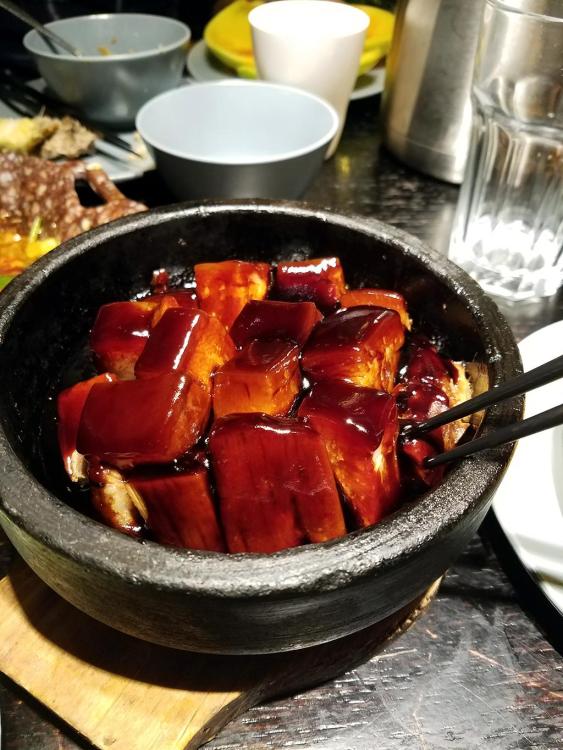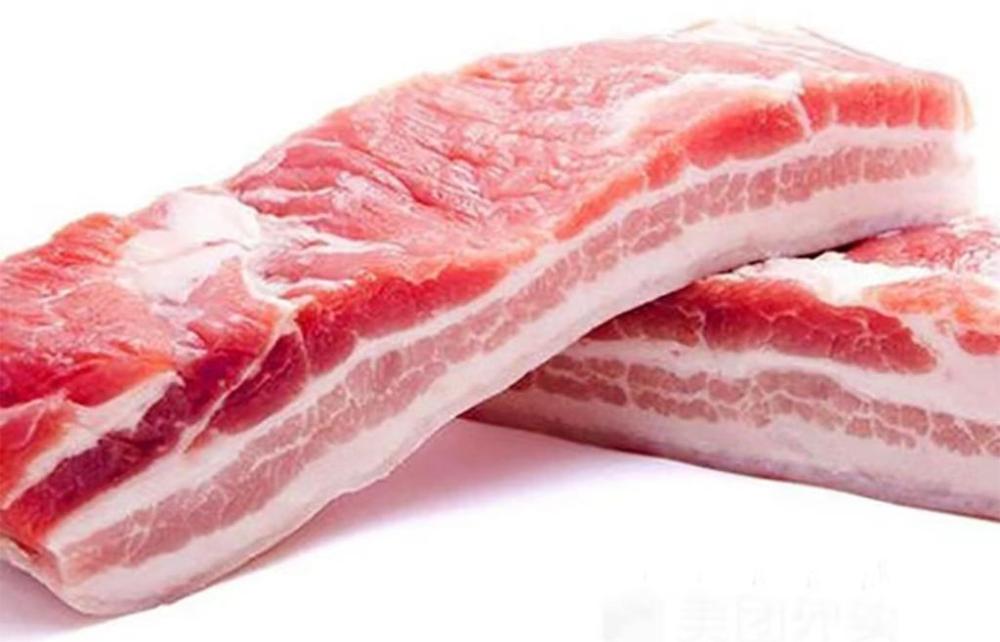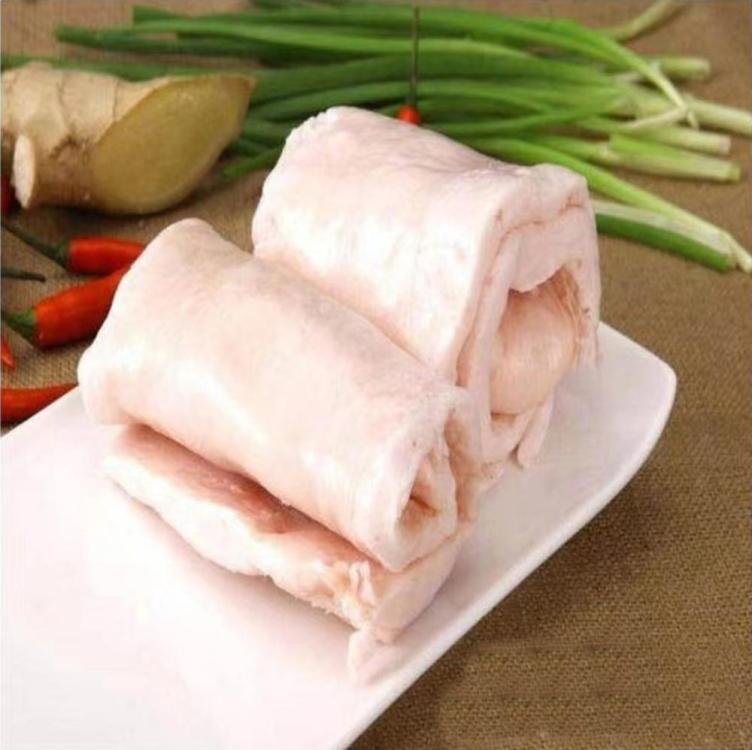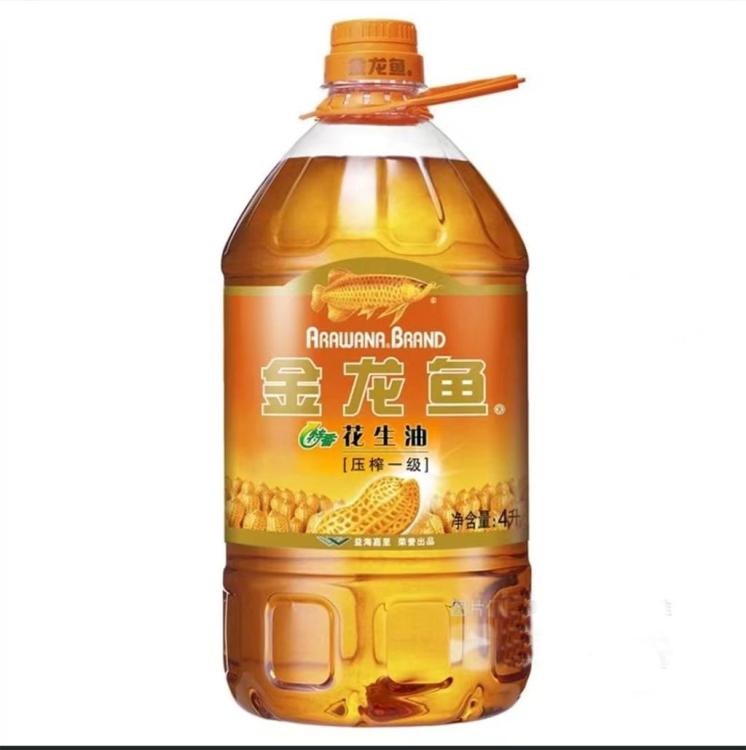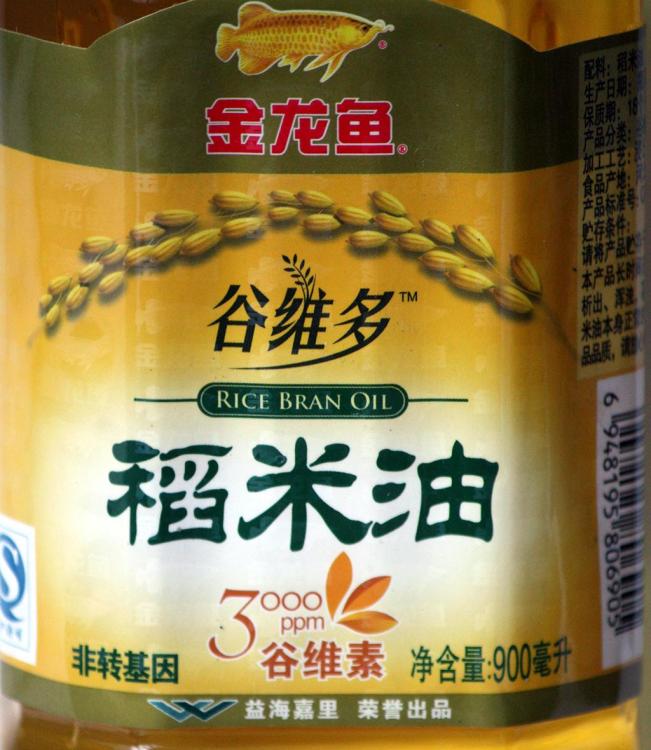29.食油 (shí yóu)
In some people’s minds, Chinese food is too oily or greasy. I suggest they have never had real Chinese food. Yes, some parts of China favour a more oily preparation – Shanghai for example but I don’t find it excessively so. Other areas are far from greasy.
The Chinese are generally unafraid of animal fats, it’s true. The famous Hangzhou dish, 东坡肉 (dōng pō ròu), Dongpo Pork is made from from pork belly that is nearly all fat. However, when well made, it isn’t greasy at all. The fat is meltingly soft and packed with flavour.
东坡肉 (dōng pō ròu) - Dongpo Pork
The pork of choice is almost always 五花肉 (wǔ huā ròu) - literally ‘five flower meat’ so named because five layers are visible – two pairs of fat and flesh and finally the skin.
五花肉 (wǔ huā ròu) - Five Flower Pork Belly
Even when buying say a piece of pork tenderloin for a lean meat stir fry, it will come with fat. This will be removed and cut into pieces then rendered out to be used to stir-fry the dish and any accompanying vegetables etc. The veg do not pick up any porcine flavours. I have only once seen lard (pig fat) in a supermarket – everyone renders their own.
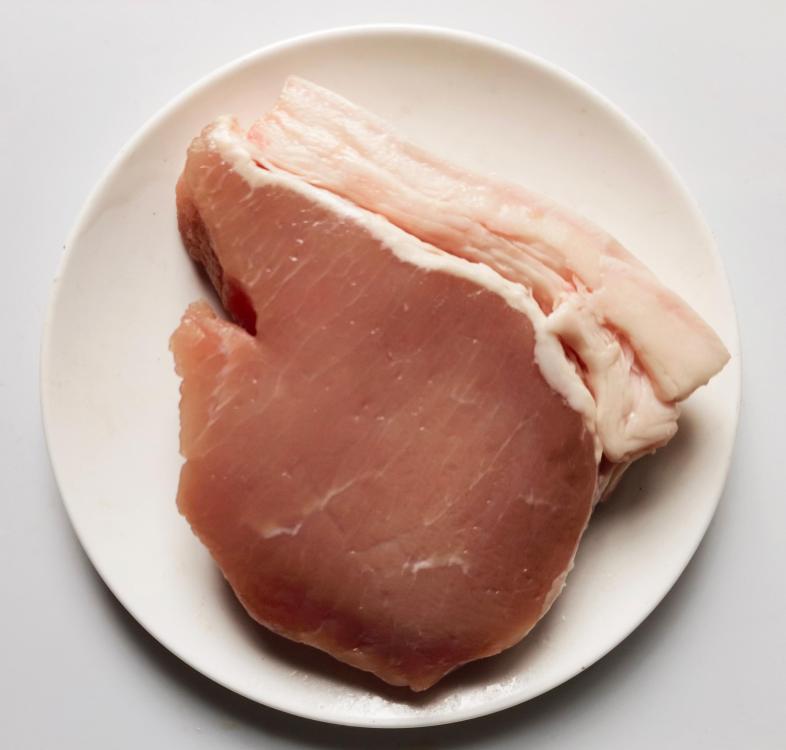 猪里脊肉 (zhū lǐ ji ròu) - Pork Tenderloin
猪里脊肉 (zhū lǐ ji ròu) - Pork Tenderloin
High quality leaf lard (猪板油 - zhū bǎn yóu) from the kidneys is available on-line at reasonable prices of around $2 USD for 500 grams, just over 1 lb.
猪板油 (zhū bǎn yóu) - Leaf Lard*
Besides pig fat, various vegetable cooking oils are used. The generic term is 食油 (shí yóu), literally ‘food oil’. The preferred choice is very regional. Although my local stores all carry 大豆油 (dà dòu yóu) soy oil, 葵花油 (kuí huā yóu) sunflower oil, 菜油 (cài yóu) rapeseed oil/canola,, 玉米油 (yù mǐ yóu) cØrn oil and 植物油 (zhí wù yóu) blended anonymous ‘vegetable’ oil, by far the favourite locally is 花生油 (huā shēng yóu) peanut oil. Other areas differ.
化身有 (huā shēng yóu) - Peanut Oil*
I differ, too. I prefer the neutral taste and high smoke point of 稻米油 (dào mǐ yóu), aka 米糠油 (mǐ kāng yóu), which is rice bran oil.
稻米油 (dào mǐ yóu) - Rice Bran Oil
橄榄油 (gǎn lǎn yóu), imported olive oil has become available in recent years. I was so excited I took my first selfie holding a bottle just to show friends who had left China appalled at the previous lack of the Mediterranean delight. Unfortunately, what is available is generally of very low quality and is mainly used as a cosmetic by my lady friends. Chinese food never uses it!
橄榄油 (gǎn lǎn yóu)
I should also mention 麻油 (má yóu) / 香油 (xiāng yóu) / 芝麻油 (zhī ma yóu), three names for the same thing - sesame oil. This refers to toasted sesame oil and is only ever used as a finishing oil, off the heat, immediately applied to a dish before serving. It is never used for cooking or marinating. It is valued for its scent and favour, both of which are highly volatile and rapidly lost when heated.
芝麻油 (zhī ma yóu) - Toasted Sesame Oil
There was a scandal a few years back when some unscrupulous turds were collecting used cooking oil from restaurants and canteens etc, “purifying” it and selling it back to the same restaurants etc as being new. This trade in what is known as 地沟油 (dì gōu yóu) or gutter oil was stamped upon from a great height and people imprisoned for lengthy times and is now thankfully extremely rare.
加油 (jiā yóu), literally ‘add oil’ is yelled at players by sports fans and is the equivalent of ‘Go Go! Go!’ or whatever you shout to encourage your team or favourite sporting star.
* Marked images from advertisements on Meituan shopping portal - fair use, but I will replace


